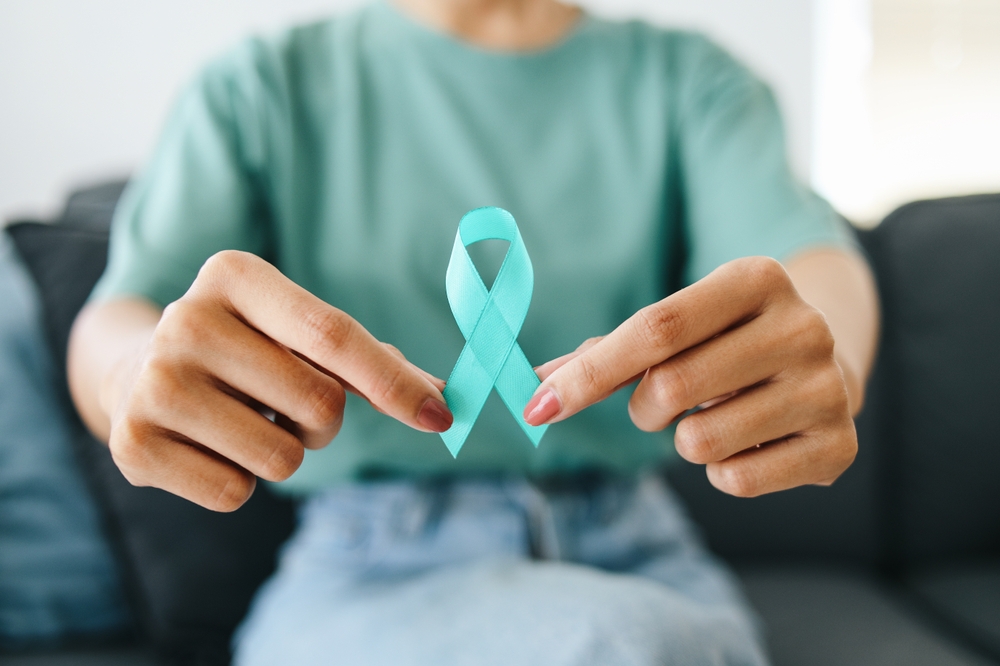Ovarian Cancer: Silent but Serious - Insights from a Gynecologic Oncologist
Cancer CarePosted:

September is National Ovarian Cancer Awareness Month, which aims to increase awareness about ovarian cancer, a leading cause of cancer deaths among women.
Although rates of new diagnoses and deaths from ovarian cancer have declined in the past few decades, the disease remains a significant health concern for women worldwide. In the United States, about 19,680 women will receive a new diagnosis of ovarian cancer and about 12,740 women will die from the disease in 2024, according to the American Cancer Society.
Dr. Fadi Abu Shahin, a gynecologic oncologist with GenesisCare at Lee Health Cancer Institute, shared insights about ovarian cancer, its detection, and treatment. Dr. Abu Shahin holds board certifications in gynecologic oncology, obstetrics and gynecology, and hospice and palliative care. He is also certified by the American Board of Integrative and Holistic Medicine.
A ‘silent killer’
Ovarian cancer is called a "silent killer" because its early symptoms are often subtle, vague, or ignored, and can be mistaken for other conditions.
These symptoms can include:
- Unexplained weight loss
- Bloating or swelling in the abdomen
- Pelvic pain
- Frequent urinating
- Constipation
Despite much research into developing a screening test for ovarian cancer, Dr. Abu Shahin says the lack of reliable, early detection methods has yielded a sobering statistic: "About 80 percent of women diagnosed with ovarian cancer are diagnosed at either stage 3 or stage 4, advanced stages when chances of cure are poor.”
The challenge with ovarian cancer lies in its nonspecific symptoms. If you have symptoms and they don’t go away after a few weeks, Dr. Abu Shahin advises that you see your doctor for evaluation.
“Early detection is crucial. When diagnosed and treated in its earliest stages, the five-year relative survival rate for ovarian cancer is as high as 92 percent,” he says. “Unfortunately, again, there are currently no widely recommended screening tests for ovarian cancer, which makes awareness even more critical.”
Risk factors
Women have two ovaries in the pelvis, one on each side of the uterus. Ovarian cancer is a group of diseases that originates in the ovaries or the related areas of the fallopian tubes and the peritoneum. Cancer cells that develop in these areas are capable of invading healthy body tissue and multiplying rapidly.
Most women who get ovarian cancer are not at high risk, but several factors may increase their risk, according to Dr. Abu Shahin.
Risk factors can include the following. If you:
- Are middle-aged or older.
- Have close family members (such as your mother, sister, aunt, or grandmother) on either your mother’s or your father’s side who have had ovarian cancer.
- Have a genetic mutation (change) called BRCA1 or BRCA2, or one associated with Lynch syndrome.
- Have had breast, uterine, or colorectal (colon) cancer.
- Have an Eastern European or Ashkenazi Jewish background.
- Have endometriosis (a condition where tissue from the lining of the uterus grows elsewhere in the body).
- Have never given birth or had trouble getting pregnant.
Source: Centers for Disease Control and Prevention (CDC)
If you have any of these risk factors, that doesn’t mean you’ll get ovarian cancer, Dr. Abu Shahin says. But you should still talk with your doctor about your risk.
Treatment approaches
Ovarian cancer is a complex disease, but treatment typically involves a combination of surgery and chemotherapy.
“Treatment decisions are personalized based on factors like the stage of cancer, the type of ovarian tumor, and the patient’s overall health,” Dr. Abu Shahin says. “In some cases, when the cancer is detected early, surgery alone may treat it. More advanced cases typically require a combination approach involving surgery and chemotherapy.”
To learn more about the types and stages of ovarian cancer, go here.
Prevention and genetic testing
While there's no foolproof method to prevent ovarian cancer, genetic testing has emerged as a valuable tool.
WATCH HEALTH MATTERS: Dr. Fadi Abu Shahin discusses treating ovarian cancer
“Genetic testing for a person’s ovarian cancer risk helps assess whether they carry specific gene mutations associated with an increased likelihood of developing ovarian cancer,” Dr. Abu Shahin explains. “Genetic testing isn’t just about risk assessment—it can also empower a person to make informed choices about their health.”
Is genetic testing right for you?
The Centers for Disease Control and Prevention recommends genetic testing if you have:
- A strong family history of breast and ovarian cancers
- A moderate family health history of breast and ovarian cancers and are of Ashkenazi or Eastern European Jewish ancestry
- A personal history of breast cancer and meet certain criteria (related to age of diagnosis, type of cancer, presence of certain other cancers or cancer in both breasts, ancestry, and family health history)
- A personal history of ovarian, fallopian tube, or primary peritoneal cancer
- A known BRCA1, BRCA2, or other inherited mutation in your family
Source: CDC
A certified genetic counselor with Lee Health Cancer Institute can help you make an informed decision whether genetic testing is an option for you.
Although ovarian cancer remains a challenging disease because it’s difficult to detect early, genetic testing and awareness of persistent symptoms can play crucial roles in managing risk and improving outcomes.
For women concerned about ovarian cancer or other gynecologic cancers, Dr. Abu Shahin says regular check-ups with their doctors and open discussions about family history and genetic risk factors are essential steps towards maintaining reproductive health.
To schedule an appointment at the Lee Health Cancer Institute, call 239-343-9500.
Existing MyChart Users: schedule an online virtual visit with your Lee Health oncologist here.

